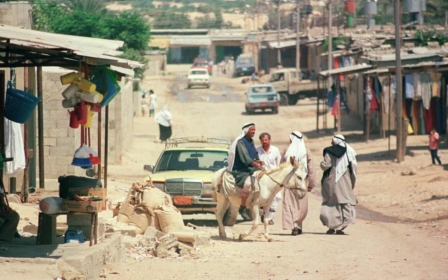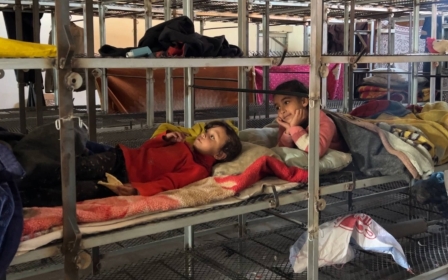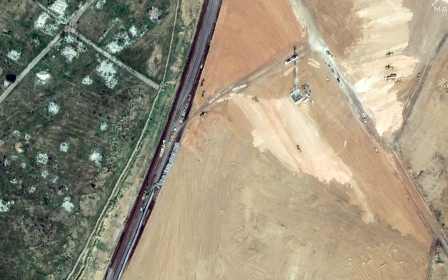US drafts counter UN Security Council resolution calling for temporary ceasefire
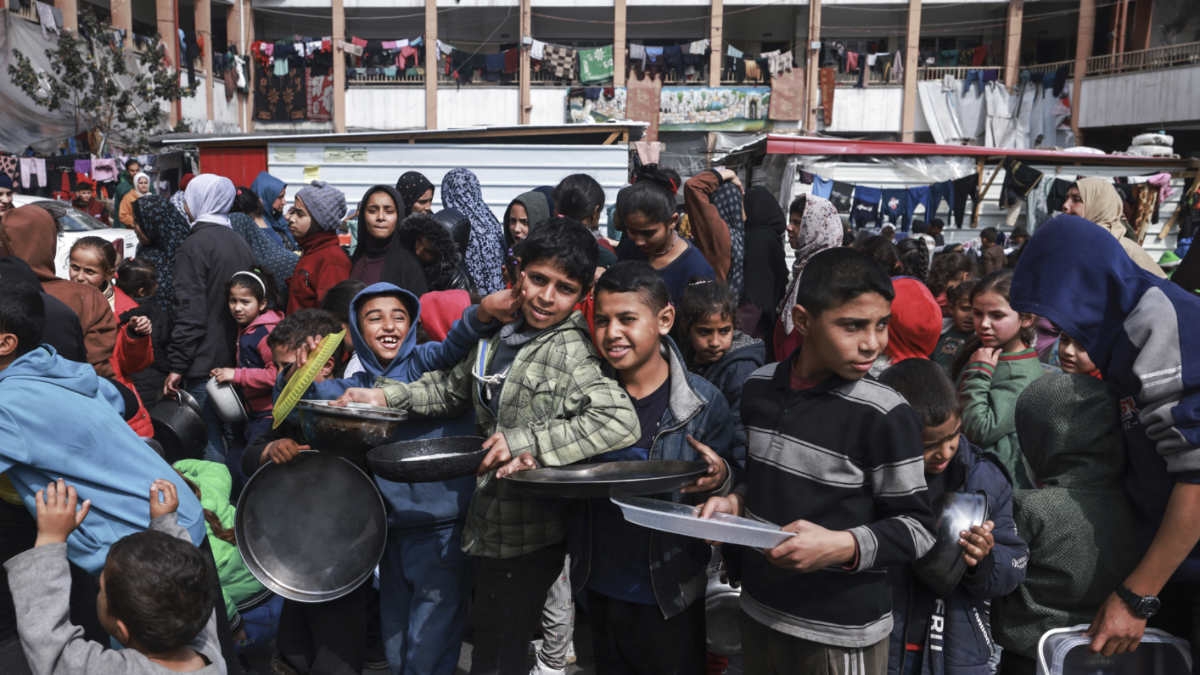
The US has proposed a United Nations Security Council resolution calling for a temporary ceasefire in Gaza and opposing a ground offensive in Rafah, according to a report by Reuters.
The draft offers an alternative to a resolution put forward by Algeria that calls for an "immediate" ceasefire in Gaza.
US ambassador to the United Nations Linda Thomas-Greenfield warned over the weekend that the US would block the Algerian resolution, saying it could jeopardise a hostage deal that would pause the fighting between Israel and Hamas.
The US resolution, according to the text seen by Reuters, would also rebuke Israel for considering a full-scale offensive on Rafah, saying that “under current circumstances, a major ground offensive…would result in further harm to civilians and their further displacement including potentially into neighboring countries”.
Israel's political leaders have signalled that they intend to launch an offensive on the southern border town.
New MEE newsletter: Jerusalem Dispatch
Sign up to get the latest insights and analysis on Israel-Palestine, alongside Turkey Unpacked and other MEE newsletters
On Monday, Israeli war cabinet member Benny Gantz said if Hamas didn’t return its hostages by the start of Ramadan, expected to start at the beginning of March, Rafah would be attacked.
A majority of the 1.4 million Palestinians who have sought refuge in Rafah have already been displaced from their homes and live in squalid conditions with little access to food, water or medicine.
An eight-year-old Palestinian girl died from dehydration and starvation in Gaza City, the NGO, Euro-Med Human Rights Monitor reported on Saturday.
The UN has warned an attack on the crammed city would lead to “a slaughter”.
Biden call 'dissuaded Netanyahu'
A former senior US official familiar with the matter told MEE recently that Biden likely dissuaded Israel from launching an immediate assault on Rafah in a phone call with Prime Minister Benjamin Netanyahu last weekend.
But the administration’s language on Rafah has shifted since the start of the war. The US initially opposed any assault on the city, fearing it would provoke a forced displacement of Palestinians into Egypt, with potentially destabilising effects on the Arab world’s most populous country.
National Security Council spokesman John Kirby called the idea “a disaster”.
While the US is opposed to an assault, it has not drawn a public red line with Israel.
Instead, at a press conference last week, State Department spokesperson Matthew Miller said Israel needed to present a “credible” plan to protect civilians that “should be executed before they (Israel) launch a military campaign” on the city.
Even as it expresses displeasure with a Rafah offensive, the draft UN resolution leaves Washington some diplomatic space to avoid a total break with its closest Middle East ally.
According to Reuters, the text says that an offensive “would have serious implications for regional peace and security” and “should not proceed under current circumstances”.
While ties between the US and Israel are strained, President Biden has continued to publicly press Congress to approve arms transfers to Israel.
Truce talks 'not promising'
The administration is focusing its efforts on brokering a hostage deal between Hamas and Israel that could lead to a six-week truce, one that Biden says he hopes could be extended to a “sustained pause in the fighting”.
Israel’s threat to launch an offensive on Rafah could be a pressure tactic, as negotiations for a deal take place among Arab, Israeli and US officials, experts have told MEE.
But even the threat of an assault poses risks.
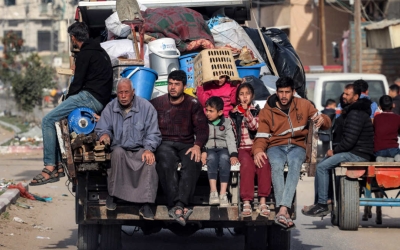
Mohammed bin Abdulrahman Al Thani, the prime minister of Qatar - who along with Egypt’s intelligence chief Abbas Kamel is mediating between Hamas and Israel - said over the weekend that the negotiations for a truce were "not very promising”.
Leaking the UN draft could also be a way for the US to put pressure on Israel.
Since October, it has wielded its veto power twice to protect its ally from UN censure.
But calls from far-right lawmakers in Israel’s government to resettle Gaza, along with signs that Israel is laying the groundwork to build buffer zones in the area, have upset Washington, which wants to maintain the besieged enclave's territorial integrity.
The draft resolution would reject "any actions by any party that reduce the territory of Gaza, on a temporary or permanent basis, including through the establishment officially or unofficially of so-called buffer zones, as well as the widespread, systematic demolition of civilian infrastructure".
In order for a resolution to be adopted by the UN Security Council, it must receive nine votes in favour and no vetoes by permanent members, including the US, France, Britain, Russia and China.
This article is available in French on Middle East Eye French edition.
Middle East Eye delivers independent and unrivalled coverage and analysis of the Middle East, North Africa and beyond. To learn more about republishing this content and the associated fees, please fill out this form. More about MEE can be found here.



